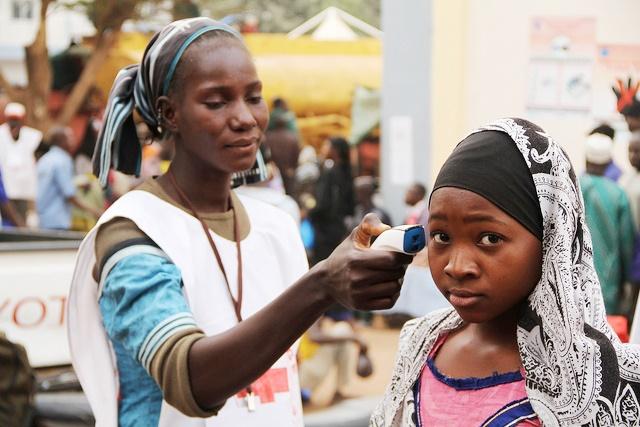World Health Organization (WHO) Secretary-General Margaret Chan, MD, MPH, yesterday commissioned an independent expert panel to assess its response to the Ebola outbreak, which has been tasked with presenting its first report at the World Health Assembly in May.
In 2010 the WHO took a similar step in appointing an external committee to review its response to the 2009 H1N1 influenza pandemic.
The WHO and other groups have faced criticism for a slow response to West Africa's Ebola outbreak, but some have defended the agency, suggesting that it is overstretched and lacking in the logistical capacity to manage what morphed into one of the largest public health crises the world has ever experienced.
A host of countries, organizations, and experts have called on the WHO to take a bigger role as the world's top health emergency responder.
Panel part of executive board reforms
In a statement, the WHO said the 6-member panel will be chaired by Dame Barbara Stocking, who spearheaded major humanitarian responses while she led Oxfam GB from 2001 through 2013. She is currently president of Murray Edwards College at the University of Cambridge.
The panel's other members are:
- Carmencita Alberto-Banatin, MD, MHA, a former health official with the Philippines government who is now an independent consultant and advisor on health emergencies and disasters
- Julio Frenk, MD, MPH, PhD, former Mexican health minister who is dean of faculty at Harvard T.H. Chan School of Public Health in Boston
- Ilona Kickbusch, PhD, director of the global health program at the Graduate Institute of International and Developmental Studies in Geneva
- Jean-Jacques Muyembe-Tamfun, PhD, a virologist and Ebola expert who is director-general of the National Institute for Biomedical Research in the Democratic Republic of Congo
- Faisal Shuaib, MD, DPH, head of Nigeria's National Ebola Emergency Operations Center
A resolution passed during a special session on Ebola at the WHO executive board meeting in January prompted Chan's appointment of the panel. At that meeting, the board approved several proposals for improving its response to global health emergencies, including a contingency fund and reforms to improve logistics and staffing.
Ebola antibody tracking, case totals
Meanwhile, a research team from Emory University and the US Centers for Disease Control and Prevention (CDC) yesterday reported on antibody responses against the Ebola virus in four patients who were treated at Emory University Hospital's biocontainment unit. Similar studies to track the body's response to Ebola infection have been difficult to do in African outbreak settings.
The findings challenge earlier assumptions that Ebola infection suppresses the immune response and shed new light on a strategy that may improve vaccine response. The report was published in Proceedings of the National Academy of Sciences (PNAS).
Though the clinical spectrum varied among the four Ebola patients, all showed strong signs of T and B cell activation at intensity levels that reflected their illness severity. The first two patients became very ill, the third was also very ill and required renal and respiratory support, and the fourth had a milder infection.
Patients' CD8+ T cells targeted several Ebola virus proteins, with the NP internal virus protein being a major one. The group pointed out that vaccines currently in African clinical trials target only the external glycoprotein (GP) and that adding NP to existing vaccines might prompt stronger T-cell responses.
Anita McElroy, MD, assistant professor of pediatric infectious diseases at Emory University School of Medicine and a guest researcher at CDC's Viral Special Pathogens Branch, said in a university press release yesterday that CD8+ T cell response has been associated with vaccine protection against Ebola in some animal models, but its importance compared with antibody responses for affecting survival and vaccine effectiveness in humans isn't known.
"We anticipate it will be an active area of research in the future," she said.
In other developments, the WHO today said the number of confirmed, probable, and suspected Ebola cases in the three most affected countries has reached 24,247, with the number of deaths at 9,961. The totals include data reported from Liberia as of Mar 5 and data from Guinea and Sierra Leone as of Mar 8.
See also:
Mar 9 WHO statement
WHO panel biographies
Jan 26 CIDRAP News story "WHO executive board approves Ebola reform proposals"
Mar 9 PNAS abstract
Mar 9 Emory press release
Mar 10 WHO Ebola situation summary



















